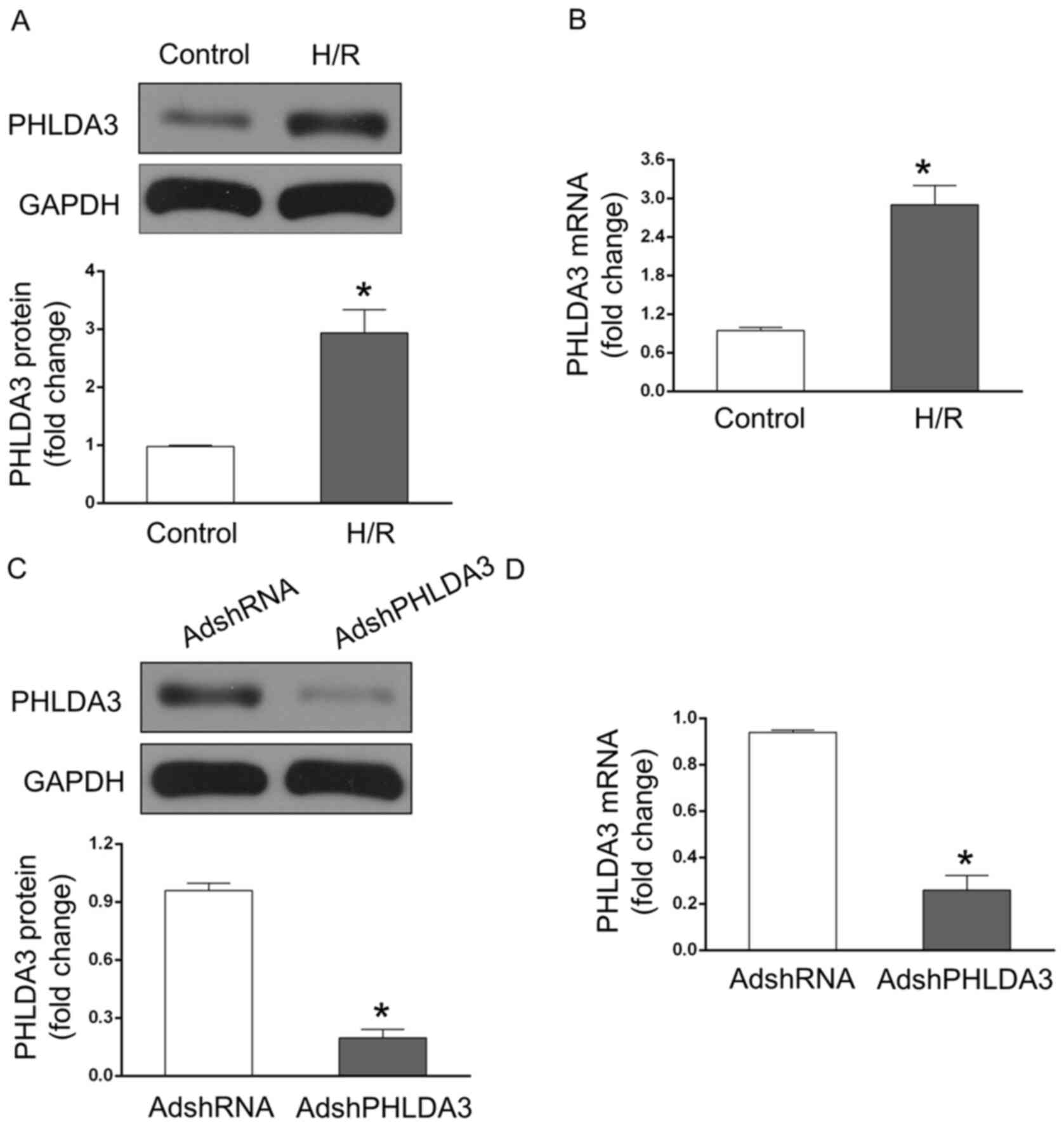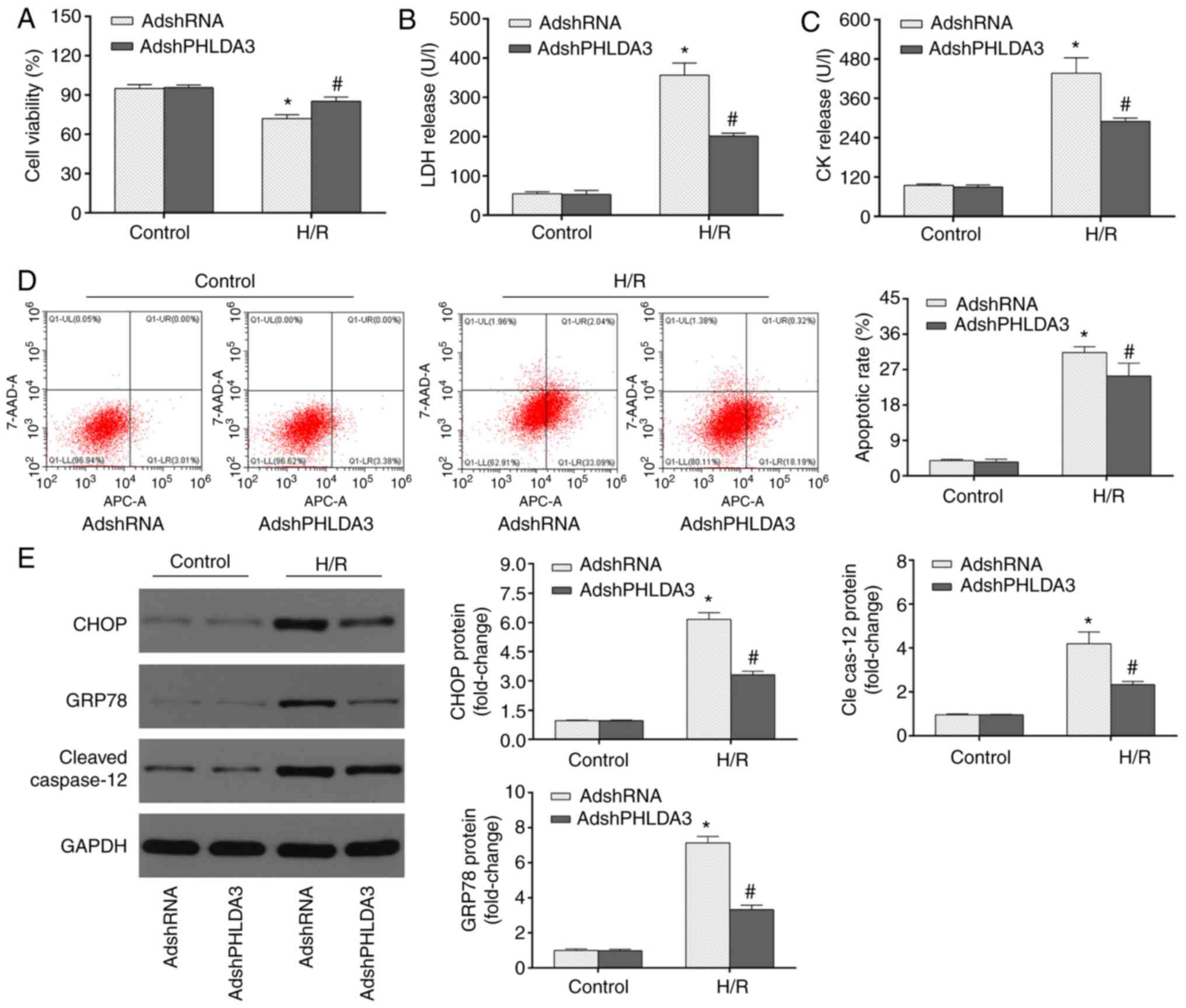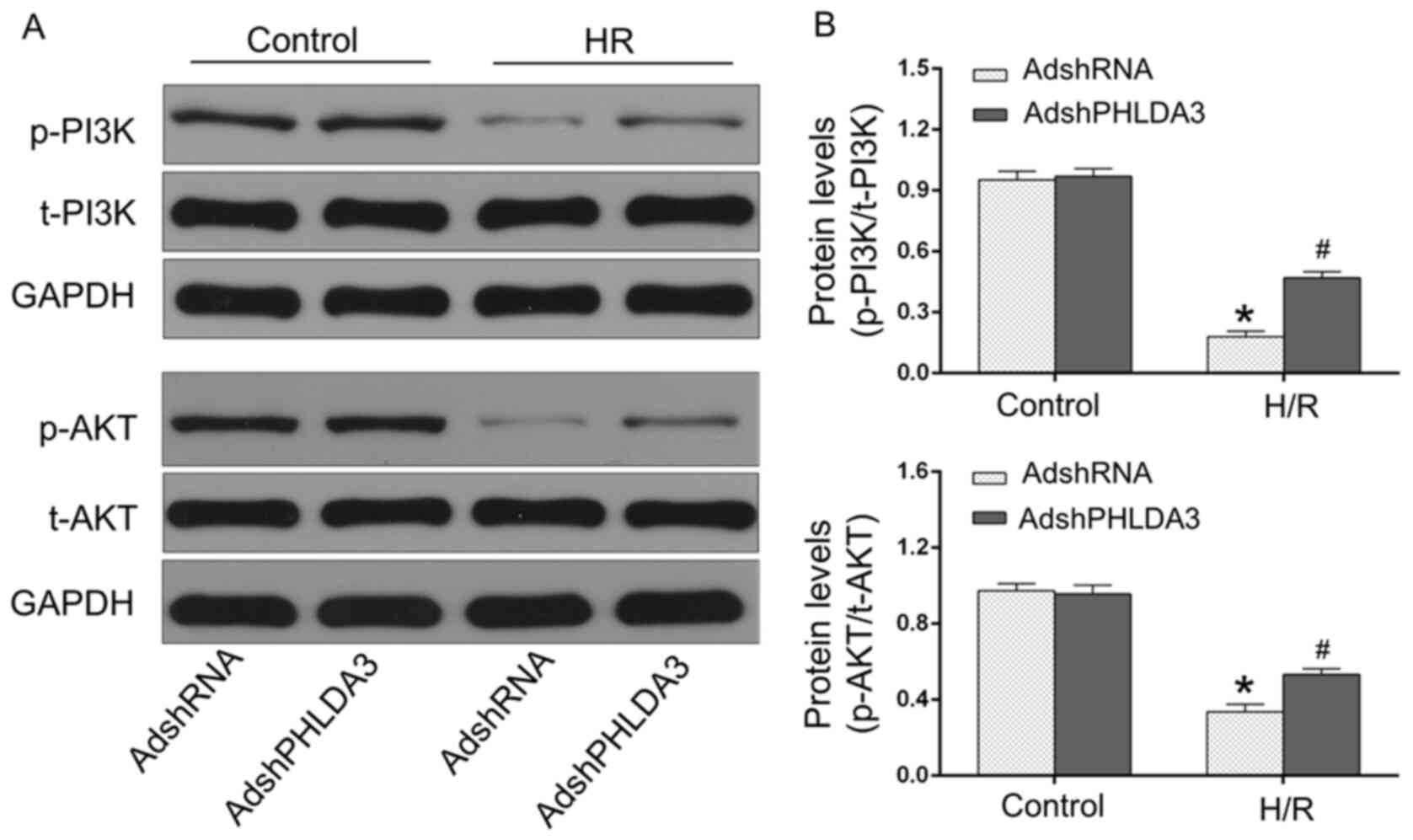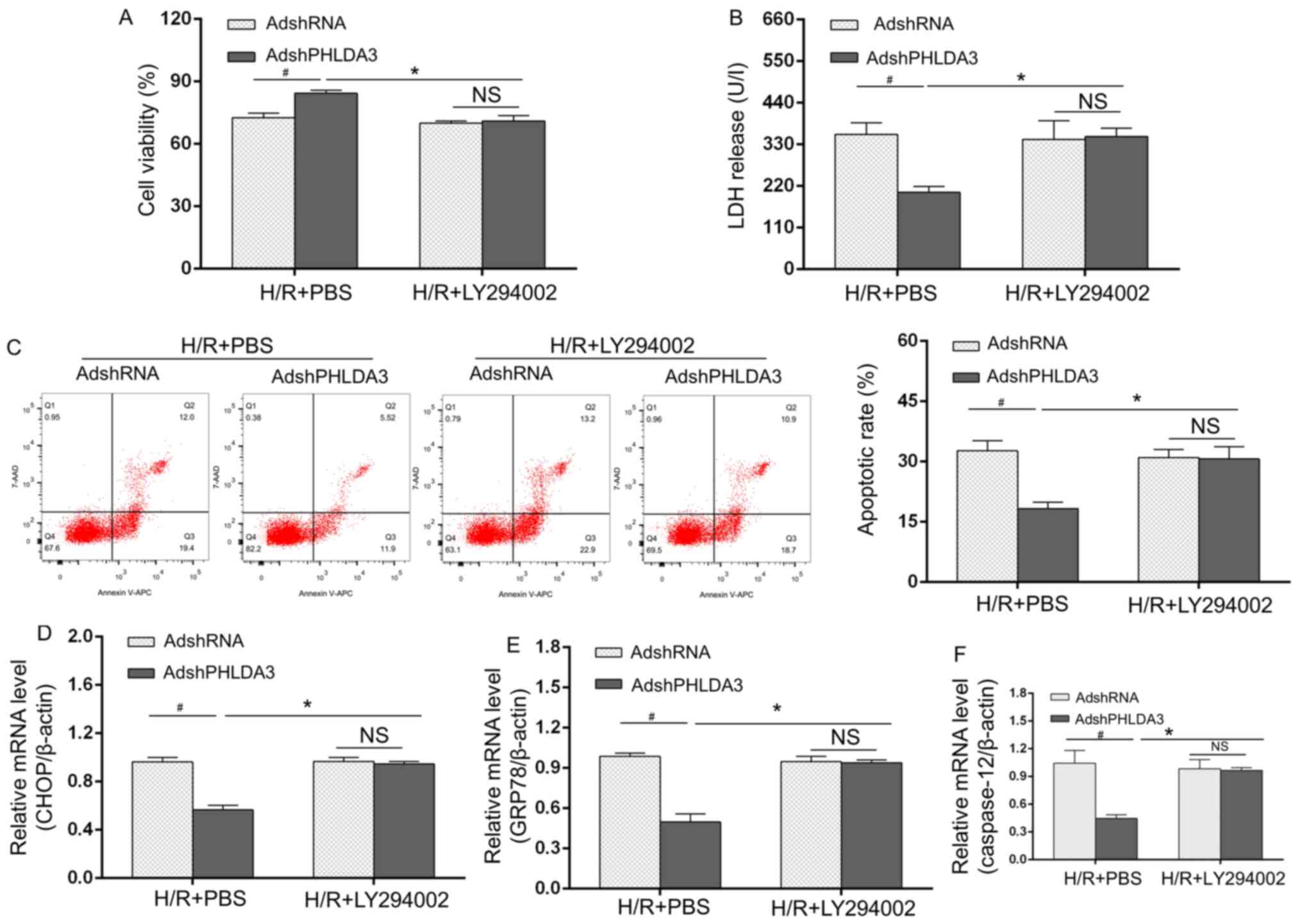|
1
|
Dai SH, Wu QC, Zhu RR, Wan XM and Zhou XL:
Notch1 protects against myocardial Ischaemia-reperfusion injury via
regulating mitochondrial fusion and function. J Cell Mol Med.
24:3183–3191. 2020.PubMed/NCBI View Article : Google Scholar
|
|
2
|
Satomi S, Morio A, Miyoshi H, Nakamura R,
Tsutsumi R, Sakaue H, Yasuda T, Saeki N and Tsutsumi YM:
Branched-chain amino acids-induced cardiac protection against
ischemia/reperfusion injury. Life Sci. 245(117368)2020.PubMed/NCBI View Article : Google Scholar
|
|
3
|
Kohler D, Granja T, Volz J, Koeppen M,
Langer HF, Hansmann G, Legchenko E, Geisler T, Bakchoul T, Eggstein
C, et al: Red blood cell-derived semaphorin 7A promotes
thrombo-inflammation in myocardial ischemia-reperfusion injury
through platelet GPIb. Nat Commun. 11(1315)2020.PubMed/NCBI View Article : Google Scholar
|
|
4
|
Zhang BF, Jiang H, Chen J, Guo X, Li Y, Hu
Q and Yang S: Nobiletin ameliorates myocardial ischemia and
reperfusion injury by attenuating endoplasmic reticulum
stress-associated apoptosis through regulation of the PI3K/AKT
signal pathway. Int Immunopharmacol. 73:98–107. 2019.PubMed/NCBI View Article : Google Scholar
|
|
5
|
Gao J, Guo Y, Liu Y, Yan J, Zhou J, An X
and Su P: Protective effect of FBXL10 in myocardial ischemia
reperfusion injury via inhibiting endoplasmic reticulum stress.
Respir Med. 161(105852)2020.PubMed/NCBI View Article : Google Scholar
|
|
6
|
Wang X, Li J, Yang Z, Wang L, Li L, Deng
W, Zhou J, Wang L, Xu C, Chen Q and Wang QK: Phlda3 overexpression
impairs specification of hemangioblasts and vascular development.
Febs J. 285:4071–4081. 2018.PubMed/NCBI View Article : Google Scholar
|
|
7
|
Han CY, Lim SW, Koo JH, Kim W and Kim SG:
PHLDA3 overexpression in hepatocytes by endoplasmic reticulum
stress via IRE1-Xbp1s pathway expedites liver injury. Gut.
65:1377–1388. 2016.PubMed/NCBI View Article : Google Scholar
|
|
8
|
Ohki R, Saito K, Chen Y, Kawase T, Hiraoka
N, Saigawa R, Minegishi M, Aita Y, Yanai G, Shimizu H, et al:
PHLDA3 is a novel tumor suppressor of pancreatic neuroendocrine
tumors. Proc Natl Acad Sci USA. 111:E2404–E2413. 2014.PubMed/NCBI View Article : Google Scholar
|
|
9
|
Liu J, Liu X, Hui X, Cai L, Li X, Yang Y,
Shu S, Wang F, Xia H and Li S: Novel role for pleckstrin
homology-like domain family a, member 3 in the regulation of
pathological cardiac hypertrophy. J Am Heart Assoc.
8(e11830)2019.PubMed/NCBI View Article : Google Scholar
|
|
10
|
Kawase T, Ohki R, Shibata T, Tsutsumi S,
Kamimura N, Inazawa J, Ohta T, Ichikawa H, Aburatani H, Tashiro F
and Taya Y: PH domain-only protein PHLDA3 is a p53-regulated
repressor of Akt. Cell. 136:535–550. 2009.PubMed/NCBI View Article : Google Scholar
|
|
11
|
Shen D, Chen R, Zhang L, Rao Z, Ruan Y, Li
L, Chu M and Zhang Y: Sulodexide attenuates endoplasmic reticulum
stress induced by myocardial ischaemia/reperfusion by activating
the PI3K/Akt pathway. J Cell Mol Med. 23:5063–5075. 2019.PubMed/NCBI View Article : Google Scholar
|
|
12
|
Yu L, Li B, Zhang M, Jin Z, Duan W, Zhao
G, Yang Y, Liu Z, Chen W, Wang S, et al: Melatonin reduces
PERK-eIF2alpha-ATF4-mediated endoplasmic reticulum stress during
myocardial ischemia-reperfusion injury: Role of RISK and SAFE
pathways interaction. Apoptosis. 21:809–824. 2016.PubMed/NCBI View Article : Google Scholar
|
|
13
|
Sakata N, Yamaguchi Y, Chen Y, Shimoda M,
Yoshimatsu G, Unno M, Sumi S and Ohki R: Pleckstrin homology-like
domain family a, member 3 (PHLDA3) deficiency improves islets
engraftment through the suppression of hypoxic damage. PLoS One.
12(e187927)2017.PubMed/NCBI View Article : Google Scholar
|
|
14
|
Yang G, Zhang X, Weng X, Liang P, Dai X,
Zeng S, Xu H, Huan H, Fang M, Li Y, et al: SUV39H1 mediated SIRT1
trans-repression contributes to cardiac ischemia-reperfusion
injury. Basic Res Cardiol. 112(22)2017.PubMed/NCBI View Article : Google Scholar
|
|
15
|
Zhang L, Li C, Zhu Q, Li N and Zhou H:
Liraglutide, a glucagon-like peptide-1 analog, inhibits high
glucose-induced oxidative stress and apoptosis in neonatal rat
cardiomyocytes. Exp Ther Med. 17:3734–3740. 2019.PubMed/NCBI View Article : Google Scholar
|
|
16
|
Li L, Sha Z, Wang Y, Yang D, Li J, Duan Z,
Wang H and Li Y: Pre-treatment with a combination of Shenmai and
Danshen injection protects cardiomyocytes against
hypoxia/reoxygenation- and H2O2-induced injury by inhibiting
mitochondrial permeability transition pore opening. Exp Ther Med.
17:4643–4652. 2019.PubMed/NCBI View Article : Google Scholar
|
|
17
|
Chen L, Huang J, Ji Y, Zhang X, Wang P,
Deng K, Jiang X, Ma G and Li H: Tripartite motif 32 prevents
pathological cardiac hypertrophy. Clin Sci (Lond). 130:813–828.
2016.PubMed/NCBI View Article : Google Scholar
|
|
18
|
Wu G, Liu Y, Huang H, Tang Y, Liu W, Mei
Y, Wan N, Liu X and Huang C: SH2B1 is critical for the regulation
of cardiac remodelling in response to pressure overload. Cardiovasc
Res. 107:203–215. 2015.PubMed/NCBI View Article : Google Scholar
|
|
19
|
Ye P, Xiang M, Liao H, Liu J, Luo H, Wang
Y, Huang L, Chen M and Xia J: Dual-Specificity phosphatase 9
protects against nonalcoholic fatty liver disease in mice through
ASK1 suppression. Hepatology. 69:76–93. 2019.PubMed/NCBI View Article : Google Scholar
|
|
20
|
Xiang M, Luo H, Wu J, Ren L, Ding X, Wu C,
Chen J, Chen S, Zhang H, Yu L, et al: ADAM23 in cardiomyocyte
inhibits cardiac hypertrophy by targeting FAK-AKT signaling. J Am
Heart Assoc. 7(e8604)2018.PubMed/NCBI View Article : Google Scholar
|
|
21
|
Liu R, van Berlo JH, York AJ, Vagnozzi RJ,
Maillet M and Molkentin JD: DUSP8 regulates cardiac ventricular
remodeling by altering ERK1/2 signaling. Circ Res. 119:249–260.
2016.PubMed/NCBI View Article : Google Scholar
|
|
22
|
Xin G, Xu-Yong L, Shan H, Gang W, Zhen C,
Ji-Jun L, Ping Y and Man-Hua C: SH2B1 protects cardiomyocytes from
ischemia/reperfusion injury via the activation of the PI3K/AKT
pathway. Int Immunopharmacol. 83(105910)2020.PubMed/NCBI View Article : Google Scholar
|
|
23
|
Zhang BF, Jiang H, Chen J, Hu Q, Yang S,
Liu XP and Liu G: LncRNA H19 ameliorates myocardial
infarction-induced myocardial injury and maladaptive cardiac
remodelling by regulating KDM3A. J Cell Mol Med. 24:1099–1115.
2020.PubMed/NCBI View Article : Google Scholar
|
|
24
|
Sun Y, Liu L, Yuan J, Sun Q, Wang N and
Wang Y: RP105 protects PC12 cells from oxygenglucose
deprivation/reoxygenation injury via activation of the PI3K/AKT
signaling pathway. Int J Mol Med. 41:3081–3089. 2018.PubMed/NCBI View Article : Google Scholar
|
|
25
|
Guo X, Jiang H, Yang J, Chen J, Yang J,
Ding JW, Li S, Wu H and Ding HS: Radioprotective 105 kDa protein
attenuates ischemia/reperfusion-induced myocardial apoptosis and
autophagy by inhibiting the activation of the TLR4/NF-NF-κB
signaling pathway in rats. Int J Mol Med. 38:885–893.
2016.PubMed/NCBI View Article : Google Scholar
|
|
26
|
Hu X, Zhang K, Chen Z, Jiang H and Xu W:
The HMGB1IL17A axis contributes to hypoxia/reoxygenation injury via
regulation of cardiomyocyte apoptosis and autophagy. Mol Med Rep.
17:336–341. 2018.PubMed/NCBI View Article : Google Scholar
|
|
27
|
Wang HB, Duan MX, Xu M, Huang SH, Yang J,
Yang J, Liu LB, Huang R, Wan CX, Ma ZG, et al: Cordycepin
ameliorates cardiac hypertrophy via activating the AMPKα pathway. J
Cell Mol Med. 23:5715–5727. 2019.PubMed/NCBI View Article : Google Scholar
|
|
28
|
Zhou YH, Han QF, Gao L, Sun Y, Tang ZW,
Wang M, Wang W and Yao HC: HMGB1 protects the heart against
ischemia-reperfusion injury via PI3K/AkT pathway-mediated
upregulation of VEGF expression. Front Physiol.
10(1595)2019.PubMed/NCBI View Article : Google Scholar
|
|
29
|
Lee CG, Kang YJ, Kim HS, Moon A and Kim
SG: Phlda3, a urine-detectable protein, causes p53 accumulation in
renal tubular cells injured by cisplatin. Cell Biol Toxicol.
31:121–130. 2015.PubMed/NCBI View Article : Google Scholar
|
|
30
|
Guo Y, Jia P, Chen Y, Yu H, Xin X, Bao Y,
Yang H, Wu N, Sun Y and Jia D: PHLDA1 is a new therapeutic target
of oxidative stress and ischemia reperfusion-induced myocardial
injury. Life Sci. 245(117347)2020.PubMed/NCBI View Article : Google Scholar
|
|
31
|
Yang J, Yang C, Yang J, Ding J, Li X, Yu
Q, Guo X, Fan Z and Wang H: RP105 alleviates myocardial ischemia
reperfusion injury via inhibiting TLR4/TRIF signaling pathways. Int
J Mol Med. 41:3287–3295. 2018.PubMed/NCBI View Article : Google Scholar
|
|
32
|
Kong T, Liu M, Ji B, Bai B, Cheng B and
Wang C: Role of the extracellular signal-regulated kinase 1/2
signaling pathway in ischemia-reperfusion injury. Front Physiol.
10(1038)2019.PubMed/NCBI View Article : Google Scholar
|
|
33
|
Huang CK, Kafert-Kasting S and Thum T:
Preclinical and clinical development of noncoding RNA therapeutics
for cardiovascular disease. Circ Res. 126:663–678. 2020.PubMed/NCBI View Article : Google Scholar
|


















